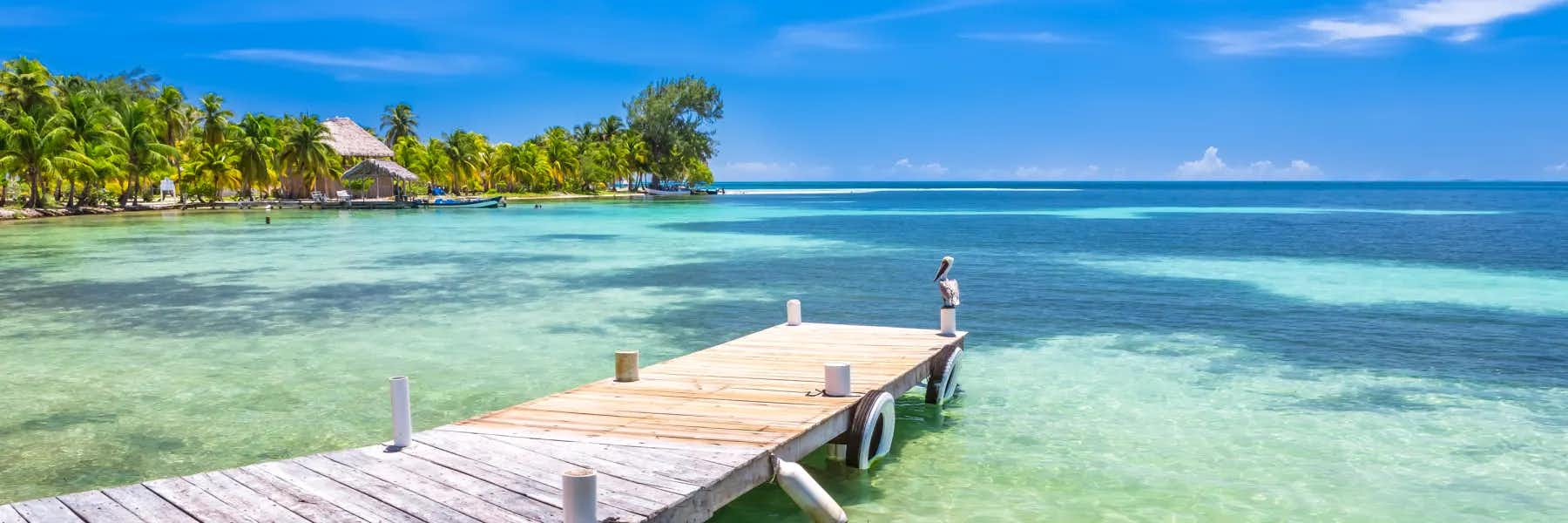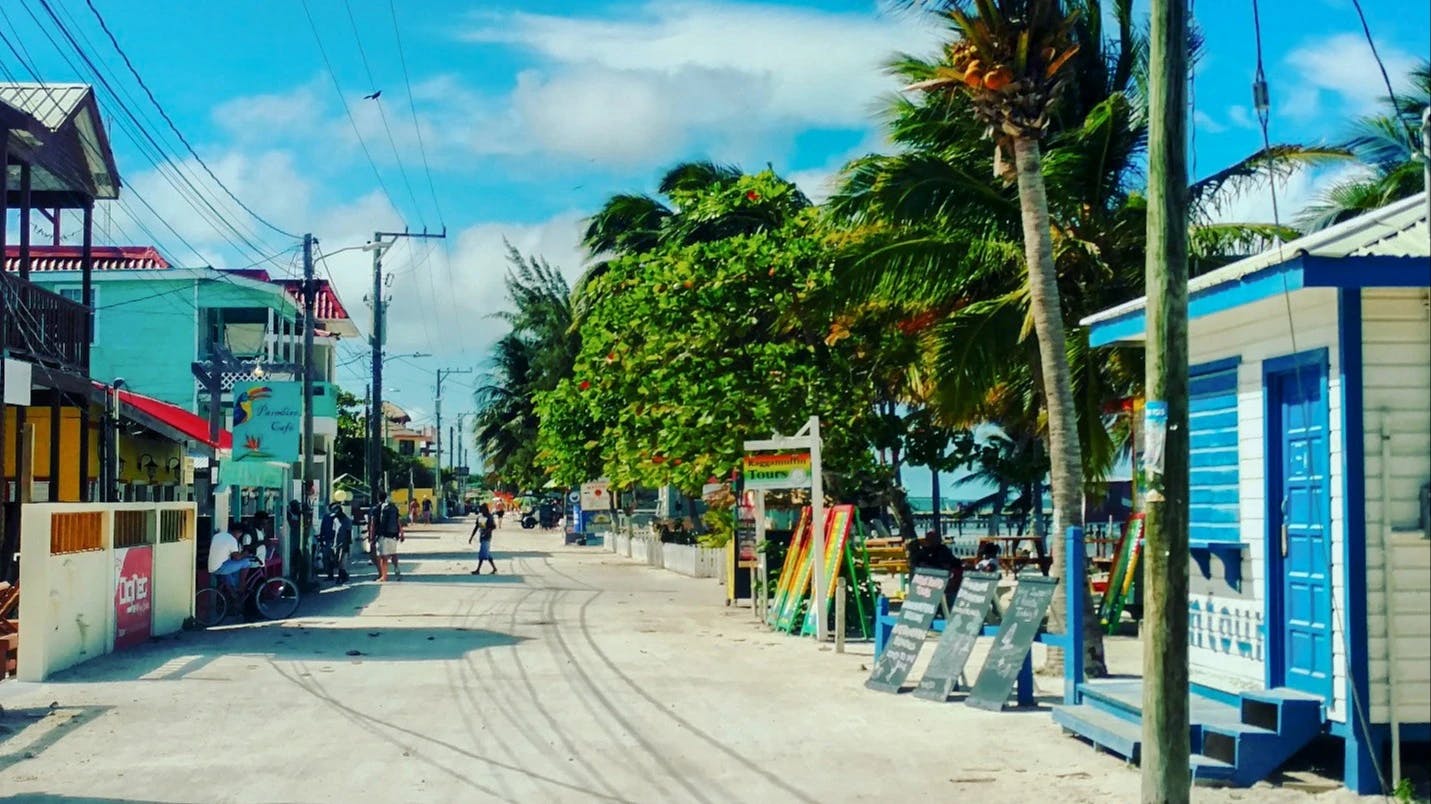Belize may not offer the lowest cost of living compared to other Caribbean countries, but most expats find that it’s still well below their home country. With experience, expats can learn to live more like the locals and find ways to save even more money.
Life in Belize is simpler, and this alone helps stretch your budget further. Walking to the local shops is the norm for many people, making buying more than you need unwise since you have to carry it home. The selection at the local shops is limited, forcing you to decide if you actually need something bad enough to purchase it online with the added costs of shipping, customs duties, and taxes– which, depending on the item, can be up to 100% of the original price of the item.
Housing
One of the most significant expenses in any personal budget is housing. Most financial experts agree that the average person should spend at most 25% to 30% of their take-home income on housing. For example, if your combined income is $5,000 per month, you should spend between $1,250 and $1,500 on rent.
Belize offers a wide range of housing options allowing you to find suitable housing with just about any budget. What you’ll end up spending is dependent on style and location:
Style: A basic, Belizean-style wood home will be your most economical housing option. These houses typically don’t have air conditioning, and many have shutters over screened windows with no glass. They also tend to be smaller, with most being one- or two-bedrooms with one bathroom, and a simple kitchen and seating area. These “no frills” options are the easiest on the budget.
More recently, concrete homes have become an increasingly popular option as the cost to build with concrete is about the same as building with wood. Concrete homes are available in a broader range of sizes, and tend to offer more conveniences, like air conditioning. If you plan to have a concrete home, expect it to hit your budget a little harder than a wooden home would.
Get Your Free Belize Report Here
Get Your Free Belize Report Here
Learn more about Belize and other countries in our daily postcard e-letter. Simply enter your email address below and we'll send you a FREE report - Belize: The Friendly, Affordable Caribbean Nation.

By submitting your email address, you will receive a free subscription to IL Postcards and special offers from International Living and our affiliates. You can unsubscribe at any time, and we encourage you to read more about our Privacy Policy.
Location: Location is everything, especially if you want to live in one of Belize’s popular expat or tourist communities, such as San Pedro, Placencia, or Caye Caulker. Even within these popular communities, rental prices can vary based on proximity to the beach or distance to the center of activities. Plan to pay more to live on or close to the beach, or near the “town center”, than you would further from the beach or in a location that may be further than walking distance from where all the action takes place.
Here are a few examples to consider:
San Pedro — A two-bedroom apartment near the beach with air conditioning located a few miles from town: $1,200 to $1,500
Placencia — A 2-bedroom apartment near the beach with air conditioning located in or near the village: $1,200 to $1,500 per month
Cayo — A one-bedroom apartment on the water with air conditioning located within walking distance to town: $1,000 per month
Food
Belize’s national meal is stewed chicken, rice, and beans. The locals eat this often; some eat it every day. Why? Because it’s cheap to prepare, and it fills you up. If you don’t want to make it, you can find it for $6 to $8 at just about every roadside stand.
Your food budget is an area where savings can really start to add up when living in Belize. But, it’s important that you learn to shop like a local, and rely more on local items and produce rather than the brands you may be accustomed to. For example, replace your Doritos, Lays, or Pringles with locally-made tortilla chips or fried plantain chips. Learn to shop the various vegetable stands and learn when is the best day of the week to get the freshest options.
Eating out will put a dent in your budget if you let it, especially in touristy areas like Placencia, Ambergris Caye, and Caye Caulker. If you plan to eat out regularly, talk to the locals and ask where they go, and they’ll direct you to the more out-of-the-way restaurants where you can eat for much cheaper. If you’re single, you might even find eating out for most of your meals cheaper than cooking for yourself.
Transportation
In many of Belize’s more popular retirement destinations, getting around is done on foot or in a gas-powered golf cart. However, depending on your proximity to shops, restaurants, and other necessities, you may opt to have a car.
Gas is expensive, about two to 2-and-a-half times what you would pay in the U.S. If you own a vehicle, learn to combine trips to make the best use of your gas budget. The cost of gasoline also affects what you’ll pay for a taxi. If possible, share a taxi with friends to keep the cost down.
If you choose to own a vehicle here, and don’t live in one of the bigger towns, getting repairs done can be a headache. Parts can be hard to come by, and finding a reliable mechanic can take time and effort. Many decide the headache isn’t worth it, and rely on taxis or public transportation to get them to places they cannot walk to.
Public transportation does exist and is the cheapest way to cover longer distances. Several companies run routes throughout the country. The Belize government has made great strides in improving the reliability and quality of public transportation. The cost to ride the bus varies based on how far you would like to travel, and can range from $1 to $15.
Get Your Free Belize Report Here
Get Your Free Belize Report Here
Learn more about Belize and other countries in our daily postcard e-letter. Simply enter your email address below and we'll send you a FREE report - Belize: The Friendly, Affordable Caribbean Nation.

By submitting your email address, you will receive a free subscription to IL Postcards and special offers from International Living and our affiliates. You can unsubscribe at any time, and we encourage you to read more about our Privacy Policy.
Utilities
What you’ll spend on utilities in Belize is primarily driven by your electrical usage. Electricity is quite expensive per KWh, with water, cooking gas, phone, and Internet being far more reasonable.
Phone: Most people rely on a cell phone rather than having a landline hooked up. The 4G LTE cell coverage is great in populated areas, but can be spotty in more remote areas. An unlimited talk and text plan with 8 GB of monthly data will only cost about $28 per month, and the largest data plan with 66 GB is $78 per month.
Internet: Thanks to the late development of Belize’s Internet access, fiber-to-the-home is available in many of the more developed areas of the country. A basic 20 Mbps service costs about $25 per month. There are also 40, 80, and 150 Mbps plans available, with the latter costing $100 per month.
One way to save on phone and Internet is to look for a combo plan from a provider like Digi. For instance, 80 Mbps Internet plus 6 GB of data and 100 minutes and texts for your cell phone will only cost $60 per month.
Cooking Gas: Belize uses butane as the sole cooking gas. The Government of Belize regulates the price of butane, but local providers may only sometimes stick to the guideline. Shop around for the best rates, and expect to pay $3 or more per gallon.
Water: The price and quality of the water in Belize vary, but overall is very good. In Placencia, you can drink the water straight out of the tap (the “pipe water,” as the locals call it), which will cost you $0.005 per gallon.
Electric: With all of the savings on the other utilities, electricity is an area where you can easily spend more than you’re accustomed to. At a cost of about $0.22 per KWh, electricity can be many times more expensive than you are used to paying. Learn to conserve (read “not run your air conditioning on 62º around the clock”), and your electric bills will not shock you each month.
Healthcare
Healthcare is an area that is rapidly improving in Belize. Over the last several years, the government has invested in building new clinics and medical services around the country. However, much of the specialty healthcare is still centered in Belmopan and Belize City. This means that you may need to travel, or be transported, should you need anything beyond basic care.
When seeking medical attention, be prepared to pay on the spot for whatever services you are provided. The good news is that the cost is way less than you will be accustomed to living in the U.S, to the point where insurance is unnecessary. A local “urgent care” trip might cost you $25, while more advanced lab work will cost $200.
For more advanced medical work, many choose to travel to Mexico, where the standard of care is higher, and the costs are still low compared to the U.S. If you decide to keep your U.S. medical insurance, you can always travel back for any treatments you may require.
Sample Monthly Budget
| Expense | Single Person (USD) | Couple (USD) |
|---|---|---|
| Rent | $1,200 | $1,500 |
| Electricity (with a/c) | $150 | $200 |
| Water | $25 | |
| Cooking Gas | $15 | |
| Household Help (maid, three times a week) | $300 | |
| Internet | $60 | $40 |
| Phone | $55 | |
| Television | $20 | |
| Healthcare | $100 | $150 |
| Transportation (private vehicle) | $200 | |
| Groceries | $175 | $250 |
| Entertainment | $100 | $200 |
| Misc. / Incidentals | $50 | $75 |
| MONTHLY TOTAL: | $2,395 | $3,030 |
Miscellaneous Expenses
Eating out, fun activities, and having your house cleaned once a week, are other areas to consider in your budget. Plan to spend $15 to $25 on dinner at a local restaurant. Roadside stand takeout will cost $6 to $10. Ask around, the locals have their “secret” places where you can save some money when eating out.
There are plenty of fun activities to get involved in, especially in the more touristy areas of Belize. Snorkeling, scuba, fishing, and spending the day out on a caye (what we call islands) are all fun things to do. However, they can be pricey, ranging from $65 to $100 per person. Locals will sometimes get together and hire a boat and captain, splitting the cost and saving from taking an official tour. If you have a car, exploring the mainland is a worthwhile activity with plenty to see and do. At many of the tourist sites, such as Xunanunich, you can hire a tour guide on the spot for a fraction of the cost of an organized group tour.
A housekeeper or groundskeeper who works daily will cost about $25 per day, and a six-day work week is standard in Belize. If you prefer a weekly house cleaning plan, spend $5 to $10 per hour with a 1,200-square-foot house taking three to four hours to clean properly. As with everything else, ask around for recommendations to get a trustworthy worker and to know what the going rate in your area is.
Conclusion
Belize can be a very affordable place to live, with many expats learning to live well on a fraction of their budget in the U.S. Seeking out less touristy areas to live and learning from the locals will stretch your budget even further. Before committing to a move to Belize, spend three to six months experimenting with living here. During this time, you will learn the ins and outs of the local area, and will be able to determine if your budget can support living here full-time
Video: Cost of Living in Belize
Get Your Free Belize Report Here
Get Your Free Belize Report Here
Learn more about Belize and other countries in our daily postcard e-letter. Simply enter your email address below and we'll send you a FREE report - Belize: The Friendly, Affordable Caribbean Nation.

By submitting your email address, you will receive a free subscription to IL Postcards and special offers from International Living and our affiliates. You can unsubscribe at any time, and we encourage you to read more about our Privacy Policy.












